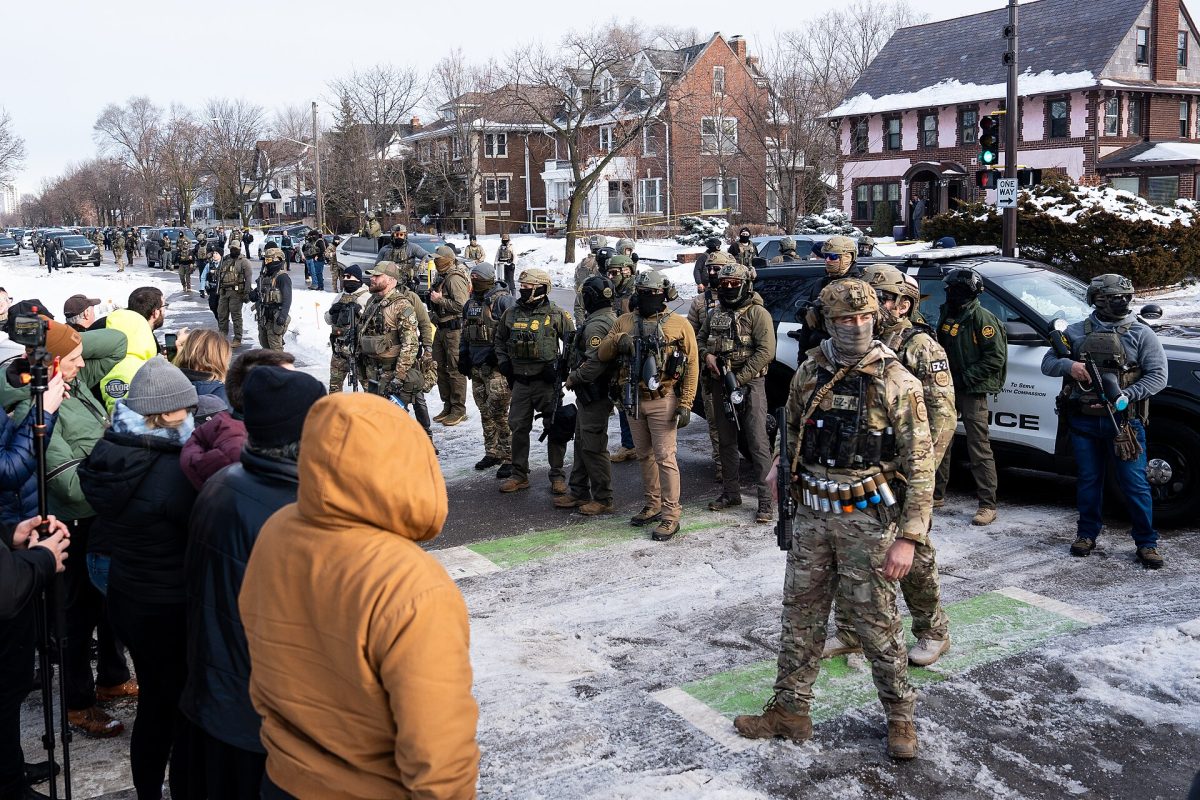On June 8th, 2024, Narendra Modi was sworn in as the Prime Minister of India for the third consecutive time. He became the second person to achieve this feat, the first being Jawaharlal Nehru, the founding Prime Minister of the Republic of India. Despite this rare accomplishment, his victory might be a Pyrrhic. To understand why, we need to examine India under Modi’s regime from 2014-2024 and the conditions under which the 2024 General Elections were conducted.
Narendra Modi, who was once a volunteer in the fundamentalist Hindu (Hindutva) fascist paramilitary organization Rashtriya Swayamsevak Sangh (RSS), has been the face of its political front, the Bharatiya Janata Party (BJP), since their victory in 2014. Our comrade Momo has written an excellent article on his rise and his atrocities since then. What kept Modi in power and boosted his cult of personality were three things: money, muscle, and media.
With the promise of total liberalization of the economy to make India reach a GDP of 5 trillion USD and usher in an Age of Prosperity like the ancient times (Amrit Kaal), Modi opened the doors for the most abhorrent oligarchs to support his party financially. Then, with the passing of the Electoral Bonds Scheme of 2018 in Parliament, an illegal and opaque financial instrument for political funding which the Supreme Court of India struck down in 2024, the BJP became the richest political party in India with official assets worth $72B while having more active members than the Communist Party of China.
However, two of his oldest financiers, the Adani Group led by Gautam Adani and Reliance Industries Limited led by Mukesh Ambani, were the primary beneficiaries. They were allocated key national state-owned enterprises in sectors such as energy, logistics, transportation, defense, and telecom when the state-owned enterprises were either sold off or crippled beyond measure to allow them to take over the market. Additionally, they were allowed to take over industries dominated by small and medium-scale enterprises, such as retail. This occurred while the government conducted financial and income tax raids on other companies as an indirect way to extort donations for the ruling party.
With deep pockets, the BJP used its army of trolls to harass and issue death threats to journalists and any member of civil society who dared to oppose them, first on the internet and then on the streets. They would then start spreading fake news via WhatsApp, a phenomenon now called WhatsApp University in India.
Through this propaganda network, they were capable of broadcasting slander and malice against anyone to almost every household in the country. Moreover, they encouraged their kleptocratic oligarchs to take over media houses and stopped allocating news broadcasting licenses to new channels. This made the prime-time news an organ of fascist propaganda, always maligning dissenters and upholding Modi’s cult of personality to an almost divine status. While the Prime Minister would shy away from any press conferences, he would join the newsroom with his loyal anchors who would ask him questions like, “Do you eat mangoes?” or “Is the 2024 general election just a formality because you alone would be winning?”
Any independent organisation trying to practice journalism despite all these restrictions would face the wrath of the income tax department or get handed defamation cases. Even the BBC was not spared. The BJP would then try to bribe opportunistic members of the opposition to switch sides and join the party or threaten them with legal and financial actions that could bankrupt them and end their careers, to the extent of arresting a sitting Chief Minister. All the opposition leaders had to do was jump into the BJP’s washing machine, get themselves clean, and see all their charges, both spurious and genuine, dropped; in turn, the BJP would be able to pass motions of no confidence in multiple state assemblies and further weaken the struggling opposition.
With all these in place, the BJP started to staff bureaucrats and judges as lackeys in key positions of institutions such as the Supreme Court and the Election Commission, which act as watchdogs of democratic practices and policies in India. The Election Commission decided to flatly ignore the flagrant violations of the Model Code of Conduct committed by Narendra Modi himself, such as calling Muslims infiltrators and claiming that the opposition, if in power, would give away wealth to Muslims.
This was a strategic shift from his previous narratives where he, unlike his party workers, would stay away from hate speech, relying only on misinformation and false ad-hominem attacks on the opposition leaders to display their ineptitude. He used this strategy to run a presidential-style campaign in a country used to Westminster-style elections. He successfully used these narratives of communal identity politics, caste-based discord, and economic growth to divert attention from rising unemployment, inequality, and inflation.
In this election, the BJP’s target was to gain more than two thirds of the seats in Parliament, a comfortable majority to make constitutional amendments. These include gerrymandering the legislative jurisdictions in their favour, striking off the secular and socialist values of the republic from the Constitution’s Preamble, and effectively ending democracy in India with an elected autocracy. There were also reported cases where the Election Commission rejected the candidatures of key opposition candidates, effectively making the BJP candidate win.
However, the Indian electorate unexpectedly stopped this seemingly inevitable fate. It somehow came as a shock to observers and pollsters that people, who seemed so intoxicated with religious fervour, finally came out to vote in record numbers against inflation, unemployment, and inequality. Analysis revealed that poor rural voters of lower class and caste switched their allegiances and voted for the opposition coalition, thereby protecting the amendment of the Constitution which might have ended their reservation status – an affirmative action program to equalise the effects of the millennia-old social evil that is the caste system in India.
To make the situation more ironic, the BJP and its upper-class, upper-caste urban voters never expected to lose the coveted seat of Faizabad (Ayodhya), where they erected a newly built Ram Temple, as promised in their manifesto for decades, on the grounds of the historic Babri Mosque that was demolished out of hate to legitimise their fictitious history of the subcontinent. To make it even worse, Modi was only able to win in the nearby seat of Varanasi by a meagre margin of 150k votes in a constituency of 2.5 million people, where his party workers claimed he would win by a margin of at least 1 million. Meanwhile, the Indian National Congress, the leading party in the opposition coalition of INDIA, whom Modi claimed would win fewer than 53 seats, went on to win 99 seats.
Now, with 240 seats, the BJP, which would scoff at the opposition for forming alliances and claim it would lead to unstable governments, has to rely on two extremely turncoat allies to reliably cross the threshold of 272 seats to gain a simple majority. However, given the BJP’s backstabbing treatment of its allies and snatching away seats by defecting members from their allies to their own party, raises the question of how much the BJP can rely on them. To make matters worse, these allies rely on a significant Muslim vote bank to retain their power from time to time. For now, the BJP would need these crutches to survive and struggle immensely to pass their neoliberal and fascistic agendas, which their core urban supporters voted for.
This election saw veteran incumbents fall and new faces doing grassroots campaigns for years rise. It gave many of us Indians hope to never lose trust in the 1.4 billion people of the country who can be misdirected at times but cannot be fooled all the time and can silently do magic, defying the expectations of the elite. However, there is a long road ahead to totally eliminate fascism in India, and the struggle will carry on.
The Indian people might have gotten a respite, but the pendulum can swing back anytime. Human rights activists, journalists, academics, and students are still in jail without trial under non-bailable offenses; and dissent will continue to be crushed either by censorship and threats or by bulldozers. However, after this election, I have restored faith in my fellow countrymen, and I believe we can make sure this is BJP’s and Modi’s Pyrrhus of Epirus moment at the Battle of Asculum.




